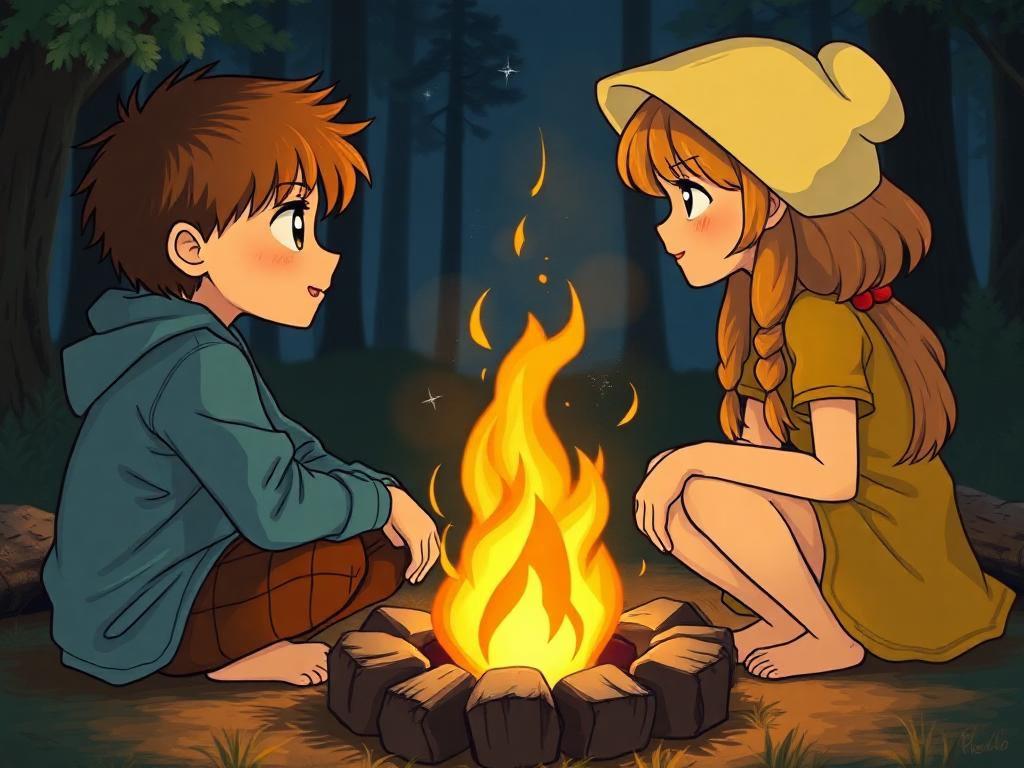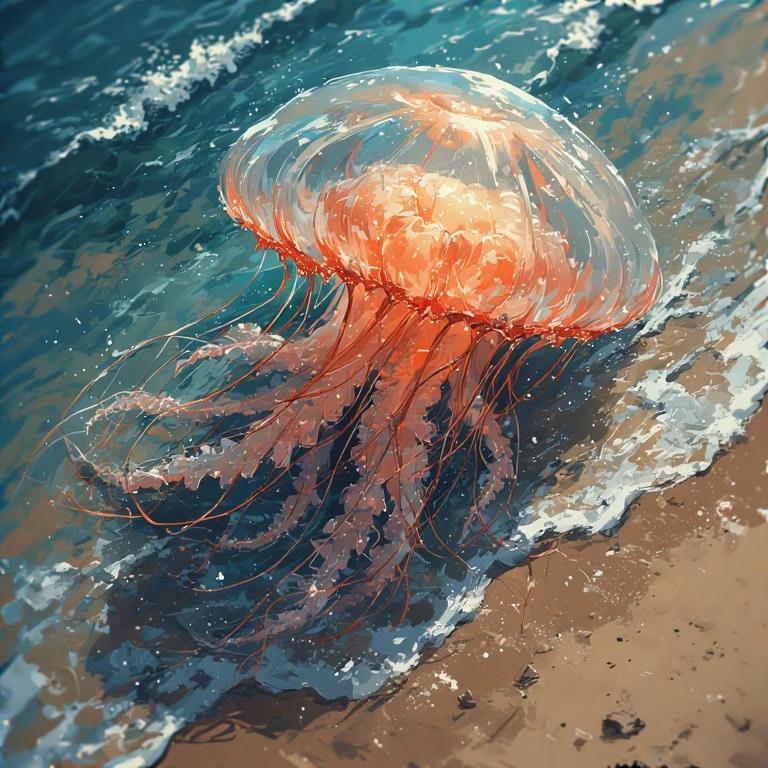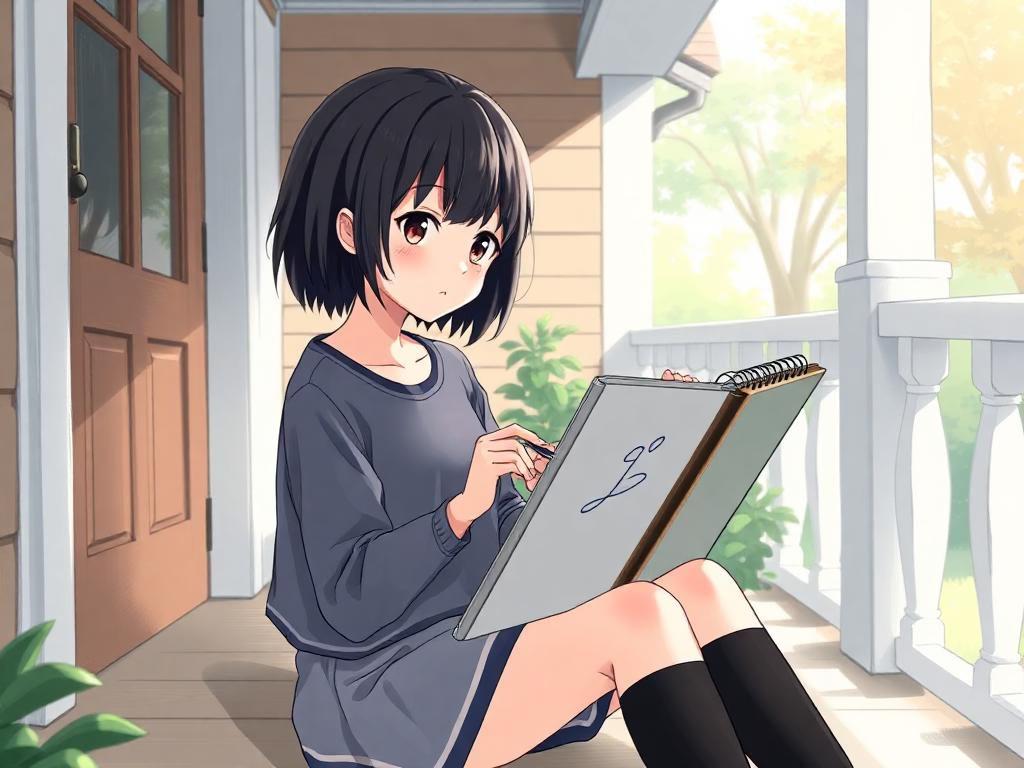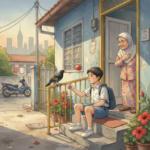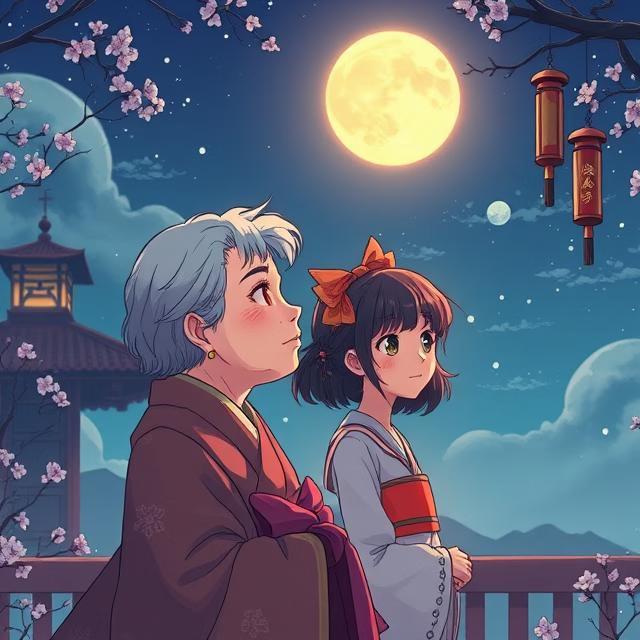
The old woman, Mei, sat on her porch swing. It creaked gently, matching the soft tinkling of the wind chimes made from sea glass—little pieces collected over many years. Each piece held a memory, a whisper of the ocean.
Mei’s hands, wrinkled and spotted, cradled a worn photograph of a young man with bright, hopeful eyes. It was her son, lost at sea twenty years ago. The chimes comforted her, reminding her of his love for the water.
A young girl, Joey, skipped down the street. She stopped at Mei’s gate, drawn by the music of the chimes. Joey was new to the small coastal town and felt lonely, like a small boat with no anchor.
“Those are pretty,” Joey said softly.
Mei looked up, surprised. She hadn’t had a visitor in a long time. “They are,” she replied, a gentle smile forming on her lips. “Each piece is from the beach.”
Joey’s eyes brightened. “Really? Can I see?”
Mei nodded and invited Joey closer. She showed Joey the different colors and textures of the glass, sharing stories of how she found each piece, each one tied to a moment, a feeling.
Joey listened, fascinated. She felt a connection to Mei, a shared sadness. Joey had lost her father recently. Moving to this new town was meant to be a fresh start, but instead, it made her feel more isolated.
“My dad loved the beach,” Joey whispered, tears welling in her eyes.
Mei reached out and gently touched Joey ‘s hand. “Mine too,” she said. “My son loved the sea more than anything.”
They sat in silence for a while, the only sound the gentle music of the wind chimes. Their shared grief created a bond between them, a bridge built on loss and longing.
The next day, Joey returned, holding a small, smooth stone she had found on the beach. It was a beautiful shade of blue, like the deep ocean.
“I thought maybe… you could add this to your chimes,” Joey said shyly.
Mei’s eyes twinkled. “It’s perfect,” she said, her voice thick with emotion. She carefully tied the stone to one of the chimes, making it a symbol of their new friendship.
Days turned into weeks. Joey visited Mei every afternoon. They talked, laughed, and shared stories. Mei taught Joey how to find different seashells, and Joey helped Mei tend her small garden filled with fragrant herbs and colorful flowers.
The town, once a reminder of Joey ‘s loneliness, started to feel like home. The ocean, once a source of pain, began to feel comforting, like a warm hug.
One afternoon, a storm rolled in. The wind howled, and the waves crashed against the shore. The wind chimes clanged wildly, their music frantic and disordered.
Joey hurried to Mei’s house, worried. She found Mei sitting calmly on the porch, watching the storm with peace.
“Aren’t you scared?” Joey asked, her voice shaking.
Mei shook her head. “The storm will pass,” she said. “Just like everything else.”
Joey sat beside her, and they watched the storm together. The wildness of the wind and the waves mirrored the turmoil in Joey ‘s heart. But next to Mei, feeling her calm presence, Joey found peace.
As the storm eased, a rainbow appeared in the sky. The wind chimes, now still, sparkled with raindrops. Their music turned soft and sweet again, a melody of hope.
Joey ‘s grief, though still there, no longer overwhelmed her. Mei’s loneliness had softened with their friendship. The ocean, once painful, became a shared symbol of memory and connection.
Through their intergenerational friendship, they discovered the universal experiences of grief and healing. The little acts of gathering sea glass and sharing stories formed a path of healing. The wind chimes, once a lament, now carried a message of strength and friendship—a reminder that even after the fiercest storms, beauty and peace could arise. The small coastal town, along with the sea and their friendship, became a sanctuary of hope.
